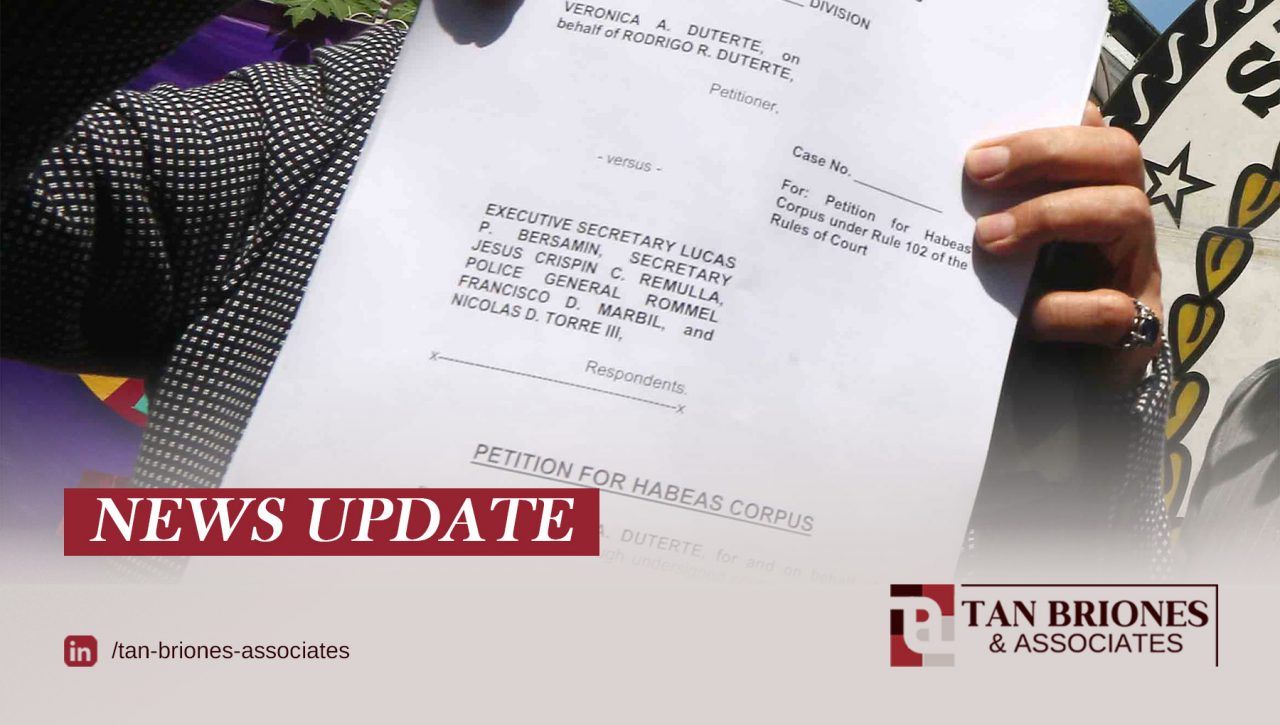
The Supreme Court (SC) has consolidated the habeas corpus petitions filed by the children of former President Rodrigo Duterte, who seek to challenge the enforcement of an International Criminal Court (ICC) arrest warrant against him.
In a unanimous resolution on March 13, 2025, the SC En Banc merged the petition filed by Davao First District Representative Paolo Z. Duterte with the earlier petitions separately filed by Davao City Mayor Sebastian Z. Duterteand Veronica A. Duterte.
The High Court also directed the respondents in the consolidated petitions to show cause within 24 hours from receipt of notice why a peremptory writ of habeas corpus should not be issued.
What Is a Writ of Habeas Corpus?
Habeas corpus is a legal remedy against unlawful detention. The Latin phrase means “you shall have the body.”
Under Rule 102 of the Rules of Court, the writ applies in cases where a person is illegally confined, detained, or deprived of liberty, or when rightful custody is withheld from the entitled party.
The SC or any of its members may issue the writ at any time, while the Court of Appeals or any of its justices may also grant it in cases authorized by law, with nationwide enforceability.
Legal Battle Over Duterte’s Arrest
The Duterte children filed separate habeas corpus petitions after their father was arrested and brought to The Hague, Netherlands, where the ICC is headquartered.
In his petition, Baste Duterte questioned the ICC’s jurisdiction over the Philippines, citing the country’s withdrawal from the Rome Statute.
“The unlawful execution of an ICC warrant, despite the Philippines’ formal withdrawal from the Rome Statute, constitutes a direct attack on national sovereignty and an illegal deprivation of liberty,” his petition read.
He further claimed that Duterte was denied due process, pointing to the alleged improper service of the warrant, restricted access to medical care, legal counsel, and visitation, and an attempt to forcibly remove him from the country.
Meanwhile, Paolo Duterte’s petition, filed on March 13, sought not only a writ of habeas corpus but also certiorari and prohibition, with a request for a temporary restraining order (TRO) and a writ of preliminary injunction against any cooperation with the ICC.
“The said acts must be annulled, and the respondents must be ordered to desist from cooperating with the ICC, as these acts are unconstitutional,” his petition stated.
The lawmaker further argued that his father’s arrest and detention were unlawful, asserting that enforcing an ICC warrant after the Philippines’ withdrawal was “patently unconstitutional.”
On March 12, the SC denied the request for an immediate TRO in the petition for certiorari filed by former President Duterte and Senator Ronald “Bato” dela Rosa on March 11, the same day Duterte was arrested.
“After a virtual deliberation on the 94-page petition, the Supreme Court found that the petitioners failed to establish a clear and unmistakable right for the immediate issuance of a TRO,” the Court said in a statement.
However, the SC has ordered the respondents to submit their comments on the petition—including the prayer for a TRO and/or a writ of preliminary injunction—within 10 days from notice, with no possibility of extension.
SC spokesperson Atty. Camille Ting clarified that while the Court denied the immediate issuance of a TRO, the overall request for one remains “a possibility.”
Follow Tan Briones & Associates on LinkedIn for more legal updates and law-related articles.







